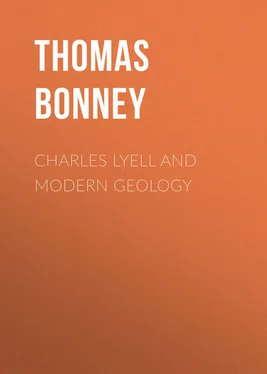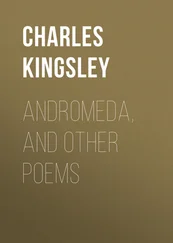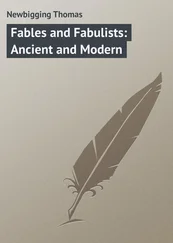Thomas Bonney - Charles Lyell and Modern Geology
Здесь есть возможность читать онлайн «Thomas Bonney - Charles Lyell and Modern Geology» — ознакомительный отрывок электронной книги совершенно бесплатно, а после прочтения отрывка купить полную версию. В некоторых случаях можно слушать аудио, скачать через торрент в формате fb2 и присутствует краткое содержание. ISBN: , Жанр: foreign_antique, foreign_prose, на английском языке. Описание произведения, (предисловие) а так же отзывы посетителей доступны на портале библиотеки ЛибКат.
- Название:Charles Lyell and Modern Geology
- Автор:
- Жанр:
- Год:неизвестен
- ISBN:http://www.gutenberg.org/ebooks/34502
- Рейтинг книги:5 / 5. Голосов: 1
-
Избранное:Добавить в избранное
- Отзывы:
-
Ваша оценка:
- 100
- 1
- 2
- 3
- 4
- 5
Charles Lyell and Modern Geology: краткое содержание, описание и аннотация
Предлагаем к чтению аннотацию, описание, краткое содержание или предисловие (зависит от того, что написал сам автор книги «Charles Lyell and Modern Geology»). Если вы не нашли необходимую информацию о книге — напишите в комментариях, мы постараемся отыскать её.
Charles Lyell and Modern Geology — читать онлайн ознакомительный отрывок
Ниже представлен текст книги, разбитый по страницам. Система сохранения места последней прочитанной страницы, позволяет с удобством читать онлайн бесплатно книгу «Charles Lyell and Modern Geology», без необходимости каждый раз заново искать на чём Вы остановились. Поставьте закладку, и сможете в любой момент перейти на страницу, на которой закончили чтение.
Интервал:
Закладка:
Charles Lyell and Modern Geology
PREFACE
The life of Charles Lyell is singularly free from "moving accidents by flood and field." Though he travelled much, he never, so far as can be ascertained, was in danger of life or limb, of brigand or beast. At home his career was not hampered by serious difficulties or blocked by formidable obstacles; not a few circumstances were distinctly favourable to success. Thus his biography cannot offer the reader either the excitement of adventure, or the interest of an unwearied struggle with adverse conditions. But for all that, as it seems to me, it can teach a lesson of no little value. Lyell, while still a young man, determined that he would endeavour to put geology – then only beginning to rank as a science – on a more sound and philosophical basis. To accomplish this purpose, he spared no labour, grudged no expenditure, shrank from no fatigue. For years he was training himself by observation and travel; he was studiously aiming at precision of thought and expression, till "The Principles of Geology" had been completed and published. But even then, though he might have counted his work done, he spared no pains to make it better, and went on at the task of improvement till the close of his long life.
My chief aim, in writing this little volume, has been to bring out this lesson as strongly and as clearly as possible. I have striven to show how Charles Lyell studied, how he worked, how he accumulated observations, how each journey had its definite purposes. Accordingly, I have often given his words in preference to any phrases of my own, and have quoted freely from his letters, diaries, and books, because I wished to show exactly how things presented themselves to his eyes, and how ideas were maturing in his mind. Regarded in this light, Lyell's life becomes an apologue, setting forth the beneficial results of concentrating the whole energy on one definite object, and the moral grandeur of a calm, judicial, truth-seeking spirit.
In writing the following pages I have, of course, mainly drawn upon the "Life, Letters, and Journals," edited by Mrs. Lyell; but I have also made use of his books, especially the "Principles of Geology," and the two tours in North America. I am under occasional obligations to the excellent life, contributed by Professor G. A. J. Cole to the "Dictionary of National Biography," and have to thank my friend Professor J. W. Judd for some important details which he had learnt through his intimacy with the veteran geologist. He also kindly lent the engraving (executed in America from a daguerreotype) which has been copied for the frontispiece of this volume.
T. G. BONNEY.CHAPTER I.
CHILDHOOD AND SCHOOLDAYS
Caledonia, stern and wild, may be called "meet nurse" of geologists as well as of poets. Among the most remarkable of the former is Charles Lyell, who was born in Forfarshire on November 14th, 1797, at Kinnordy, the family mansion. His father, who also bore the name of Charles, 1 1 Born 1767, died 1849 (also son of a Charles Lyell); educated at St. Andrew's and at St. Peter's College, Cambridge, where he proceeded to the degree of B.A. in 1791 and M.A. in 1794.
was both a lover of natural history and a man of high culture. He took an interest at one time in entomology, but abandoned this for botany, devoting himself more especially to the study of the cryptogams. Of these he discovered several new species, besides some other plants previously unknown in the British flora, and he contributed the article on Lichens to Smith's "English Botany." More than one species was named after him, as well as a genus of mosses, Lyellia , which is chiefly found in the Himalayas. Later in his life, science, on the whole, was supplanted by literature, and he became engrossed in the study of the works of Dante, of some of whose poems 2 2 In 1835, the Canzoniere , including the Vita Nuova and Convito ; a second edition was published in 1842; in 1845 a translation of the Lyrical Poems of Dante.
he published translations and notes. Thus the geologist and author is an instance of "hereditary genius."
Charles was the eldest of a family of ten – three sons and seven daughters, all of whom grew up. Their mother was English, the daughter of Thomas Smith, of Maker Hall in Yorkshire, "a woman of strong sense and tender anxiety for her children's welfare." "The front of heaven," as Lyell has written in a fragment of autobiography, was not "full of fiery shapes at his nativity," but the season was so exceptionally warm that his mother's bedroom-window was kept open all the night – an appropriate birth-omen for the geologist, who had a firmer faith than some of his successors in the value of work in the open air. He has put on record only two characteristics of his infancy, and as these can hardly be personal recollections, we may assume them to have been sufficiently marked to impress others. One if not both was wholly physical. He was very late in cutting his teeth, not a single one having appeared in the first twelvemonth, and the hardness of his infant gums caused an old wife to prognosticate that he would be edentulous. Also, his lungs were so vigorous and so habitually exercised that he was pronounced "the loudest and most indefatigable squaller of all the brats of Angus."
The geologist who so emphatically affirmed the necessity of travel, early became an unconscious practiser of his own precept. When he was three months old his parents went from Kinnordy to Inveraray, whence they journeyed to the south of England, as far as Ilfracombe. From this place they removed to Weymouth and thence to Southampton. More than a year must have been thus spent, for their second child – also a son – was born at the last-named town. Mr. Lyell, the father, now took a lease of Bartley Lodge, on the New Forest – some half-dozen miles west of Southampton, where the family lived for twenty-eight years. His mother and sisters also left Kinnordy, and rented a house in Southampton. Their frequent excursions to Bartley Lodge, as Lyell observes, were always welcome to the children, for they never came empty-handed.
Kinnordy, however, was visited from time to time in the summer, and on one of these occasions, when Charles was in his fifth year, some of the family had a narrow escape. They were about a stage and a half from Edinburgh; the parents and the two boys in one carriage; two nursemaids, the cook, and the two youngest children, sisters, in a chaise behind. The horses of this took fright on a narrow part of the road and upset the carriage over a very steep slope. Fortunately all escaped unhurt, except one of the maids, whose arm was cut by the splintered glass. The parents ran to the rescue. "Meanwhile, Tom and I were left in the carriage. We thought it fine pastime, and I am accused of having prompted Tom to assist in plundering the pockets of the carriage of all the buns and other eatables, which we demolished with great speed for fear of interruption." 3 3 Life, Letters, and Journals, vol. i. p. 3.
This adventure, however, was not quite his earliest reminiscence; for that was learning the alphabet when he was about three years old.
Charles was kept at home till he had nearly completed his eighth year, when he was sent with his brother Tom to a boarding-school at Ringwood. The master was the Rev. R. S. Davies; the lads were some fifty in number, the Lyells being about the youngest. They seem, however, not to have been ill-treated, though their companions were rather a rough lot, and they were petted by the schoolmaster's daughter. The most sensational incident of his stay at Ringwood was a miniature "town and gown" row, a set fight between the lads of the place and of the school, from which, however, the Lyells were excluded as too young to share in the joys and the perils of war. But the fray was brought to a rather premature conclusion by the joint intervention of foreign powers – the masters of the school and the tradesmen of the town. In those days smuggling was rife on the south coast, and acting the part of revenue officers and contrabandists was a favourite school game; doubtless the more popular because it afforded a legitimate pretext for something like a fight. The fear of a French invasion also kept this part of England on the qui vive , and Lyell well remembered the excitement caused by a false alarm that the enemy had landed. He further recollected the mingled joy and sorrow which were caused by the victory of Trafalgar and the death of Nelson.
Читать дальшеИнтервал:
Закладка:
Похожие книги на «Charles Lyell and Modern Geology»
Представляем Вашему вниманию похожие книги на «Charles Lyell and Modern Geology» списком для выбора. Мы отобрали схожую по названию и смыслу литературу в надежде предоставить читателям больше вариантов отыскать новые, интересные, ещё непрочитанные произведения.
Обсуждение, отзывы о книге «Charles Lyell and Modern Geology» и просто собственные мнения читателей. Оставьте ваши комментарии, напишите, что Вы думаете о произведении, его смысле или главных героях. Укажите что конкретно понравилось, а что нет, и почему Вы так считаете.












